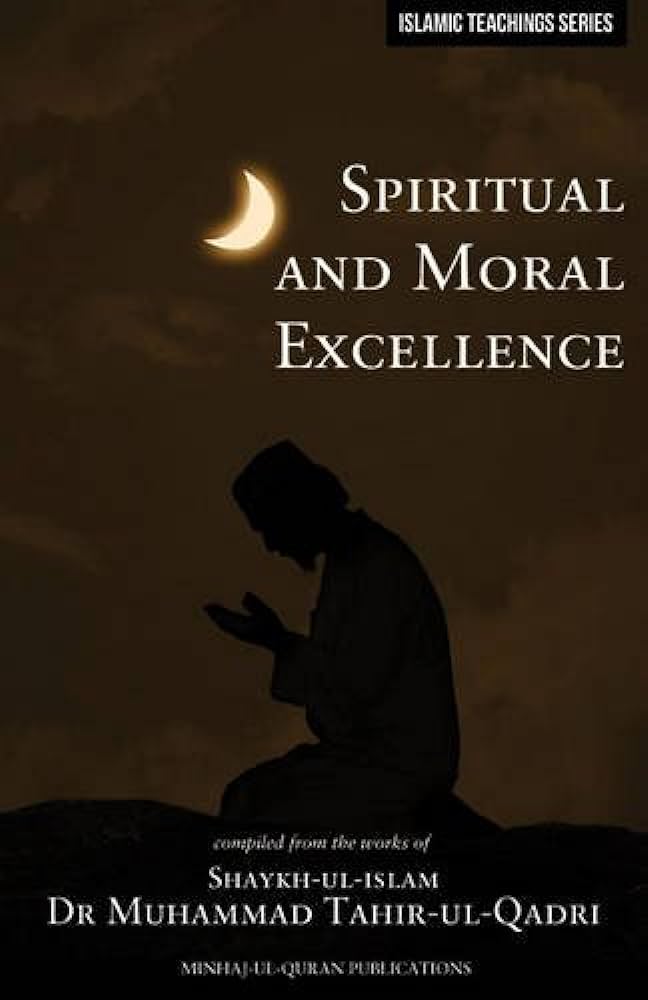Q. What Corruptions have entered the Practices of Tasawwuf in Contemporary times?A: Unfortunately tasawwuf, a systematic and orderly method for spiritual development, in recent times, has had many conflicting ideas introduced to it in the form of fabricated practices; it is now limited to a certain number of rituals. The foundation of ta|awwuf, which is meant to be sincerity, has been forfeited by the pretender Sufis who assemble under their own false pretences. Unqualified shaykhs have limited ta|awwuf to the prescribing of amulets, spiritual healing, and yearly celebrations of past saints. Their whole ~arÏqa does not stand for anything more than the ritual of making a pledge. Neither the ‘shaykh’ knows anything about the soul of his disciples nor does the disciple know anything about the state of his shaykh. All of the disciples get together every year for celebrations of urs (a yearly remembrance of a deceased saint); their ‘shaykh’ tours in the local areas of his disciples a few times a year and they collect gifts and pay homage to him before his return to home. Nothing more than this takes place. Such is the state of their self-made concoctions. This sad state of affairs has converted tasawwuf from a tradition of renunciation to a commercial enterprise. In this enterprise the business of inherited successions has been introduced. Many malpractices which are clearly in conflict with the Shariah have been allowed to take place. The decline has reached beyond the abyss the condition of which has been described in the following words of Iqbal:
Meeras Mein Ayi Hai Inhain Masnad-e-Irshad Zaghon Ke Tasarruf Mein Auqabon Ke Nasheman! As inheritance they received the seat of guidance. Crows have occupied the nests of royal falcons.
One of the ordeals which tasawwuf has now come to face, in the social and moral facets of human life, is the decreased involvement of religious scholars in the sphere of education. As a consequence, tasawwuf has lost its place among the classical religious disciplines, as well as the great seats of learning and spirituality. Another tribulation that has dented the reputation of tasawwuf came from pseudo shaykhs and pretender Sufis who were vested with commercial interests. They adorned the mantle of tasawwuf and brought only misguidance to people. They sought to break up the Shariah from the Tariqa claiming that Shariah was the domain of the scholars; whereas tasawwuf was their sole domain and that they had nothing to do with the Shariah. Thus these imposters distanced themselves from the Quran and hadith, and the science of fiqh claiming that teaching these was not their duty, but the duty of the scholars. This practically translated to a denial of the Shariah where an attempt was made to implant the belief in the minds of people that TarÏqa, or spirituality, and friendship with Allah had nothing to with the Shariah.
Q. Can Tasawwuf be Revived in the Current Age of Decline? A: In this current age of decline, the revival of tasawwuf is still possible if the following five conditions are fulfilled:1. To reaffirm a strong, practical commitment to the teachings of the Shariah. To achieve this, two things are required: the first is to acquire a well-grounded understanding of the Shariah which comprises sound knowledge of its rulings and the essentials of the Quran and Sunna, and fiqh; and the second is to practice the Shariah and Sunna with firmness and determination.
2. To renew the teachings of tasawwuf by officially incorporating it into the curriculum of every school and institution.
3. To organise practical training of the teachings of tasawwuf. Sincere attempts need to be made to revive the institutions of spiritual assemblage and retreats. The shrines of saints must be rehabilitated into centres of spiritual training. People should be made aware that the very first centre for the disciplining of the soul was established by our own Beloved Prophet(peace be upon him) under the appellation of Suffa for his Sufi Companions(RA) who were known as Ashab al-Suffa.4. To return to the way of the Prophet(peace be upon him) in running the institutions of spiritual development in accordance to the methods adopted by our Prophet(peace be upon him), his Companions(RA) the Successors and the Followers.
5. To promote altruism and benevolence as in accordance to the practice of our Prophet(peace be upon him) through works of social welfare; and to support the wayfarers in the path of Allah is an essential part of the Prophetic tradition.

Q. What Contributions are being made by Minhaj-ul-Quran for the Revival of Tasawwuf? A: At this crucial time in history, when the Muslim Umma is rampaged with extremism—either through the denial of tasawwuf or its excesses—Minhaj-ul-Quran is standing up to the challenge by reviving genuine tasawwuf. It has done so by practically reintroducing tasawwuf through means which are in conformity to the requirements of the time. Minhaj-ul-Quran continues its attempts to revive tasawwuf on two fronts: the academic front and the practical front.
Q. What are the Services Minhaj-ul-Quran offers on the Academic front? A: In the early stages, when the founder and leader of Minhaj-ul-Quran, Shaykh-ul-Islam Dr Muhammad Tahirul-Qadri, started delivering lectures on a variety of subjects, such as the essentials of Islam and Ïman and on the meanings of the Holy Quran, he also delivered lectures on tasawwuf, which till today continue to benefit millions of people in the form of audio and video cassettes, CDs, VCDs and DVDs, etc. He has also written books on different aspects of tasawwuf. Some titles of which are listed below:
1.Righteous Character & Social Interactions (al-Minhaj al-Sawi [part-II])
2.Pearls of Remembrance
3.Divine Pleasure (The Ultimate Ideal)
4.The Excellence of Actions
5.The Excellence of States
6.The Excellence of Morality
7.The Reality of Spiritualism
8.The Practical Guide for Mysticism and Spiritualism
9.Islamic Training Curriculum (part-I)
10.Islamic Training Curriculum (part-II)
11.Obedience to God
12.Remembrance of God
13.Love of God
14.Fear of Allah and its Requisites
15.Remembrance and the Company of the Pious
16.The Morality of the Prophets- Islamic Teachings Series
17.The Purgation of heart and inner self
18.The Spiritual Disorder and its Cure
19.Life is a Clash between Good and Evil
20.Everyone is a Slave to his Likes and Dislikes
21.Our Real Homeland
22.Crime, Repentance and Eeform
23.The Classes of Servants: The Blessed and the Condemned
24.The Quranic Concept of Nature
25.The Quranic Way of Training
26.The Blessings of Muhammad(peace be upon him)
27.The Blessings of the Greetings and Salutations (A Gift of 2,500 Greetings and Salutations in the Presence of Allah’s Beloved Messenger(peace be upon him)
28.A Collection of the Prophet’s Supplications and Litanies
29.Devotions of Allah’s Remembrance
30.The God-Given Entreats
31.The Excellent Source of Salutations for the Birthday Celebrations
32.Greetings for the Holy Prophet a contained in the Quranic Chapters
33.The Alphabetic Names of the Holy Prophet
34.The Salutation of the Universe
35.The Salutation for the Birth Celebrations
36.The Salutation for the Prophetic Features
37.The Virtuous Salutation
38.The Salutation of Ascension
39.The Salutation of the Masters
40.The Supplications of Imam Zayn al-Abidin41.Teachings of Islam Series: Ihsan
There are many other books that have been written and are in the process of publishing.
Q. What Practical Steps has Minhaj-ul- Quran taken for the Revival of Tasawwuf and the Promotion of Spirituality?
A: The founding leader of Minhaj-ul-Quran has introduced tasawwuf to the people of the present age in order to make them aware of the teachings of the saints, like al-RazÏ, al-GhazalÏ, al-RumÏ, al-JÏlanÏ, HujwirÏ, al-Shadhili, Mujaddid Alf ThanÏ Ahmad SirhindÏ and Shah WalÏ Allah. Keeping in mind the demands of the modern age, Shaykh-ul-Islam Dr. Muhammad Tahir-ul-Qadri has taken the following steps:At the Minhaj University, tasawwuf is included into the curriculum and students are instructed to perform the tahajjud (pre-dawn) prayer and other optional acts of worship. Each organisational body—in their respective locality—regularly arranges weekly gatherings of dhikr, nat and night-vigil (qiyam al-layl). At the central headquarters of Minhaj-ul-Quran, a monthly night-vigil is organised. The 15th night of Shaban and celebrations of Mawlid al-Nabi(sallalahu alaihi wa aalihi wa sallam) are also part of this programme. During the last ten days of Ramadan, a yearly collective itikaf is arranged at Itikaf City. The programme includes lectures for the attendees and education in a secluded spiritual environment for self-purification. The lectures of Shaykhul- Islam Dr Muhammad Tahir-ul-Qadri also emphasizes the need of change for the establishment of an environment of purification and piety. Minhaj-ul-Quran also arranges spiritual retreats for students, both male and female, and other affiliates of the organization for the purpose of moral and spiritual reform. These retreats are held at regular intervals with the purpose of creating productive members of society.
According to Shaykh-ul-Islam, tasawwuf without Shariah is totally rejected; Islam is neither that one is made captive by the world, nor is it to abandon the world completely. Shaykh-ul-Islam regards extreme love for the Beloved Prophet(peace be upon him) as the foundation of tasawwuf and all good fortune. Revering the Prophet(peace be upon him) is the springhead of spirituality and without disciplining the soul and purifying the heart this cannot be obtained.
Shaykh-ul-Islam believes that tasawwuf is the only method of education and good nurturing that can practically guarantee, in today’s materialistic world, a relationship with Allah. This is the path of the Sufis who are safeguarded from all satanic temptations and worldliness. According to the founder of the movement, only the preparation of spiritually minded people can promote high moral values, self-discipline, and improvements in behaviour be promoted in society. He states: The minds of the youth cannot be changed (for the better) through radicalisation, but through tasawwuf.
Book – Spiritual & Moral Excellence -by Shaykh ul Islam Dr. Tahir ul Qadri



